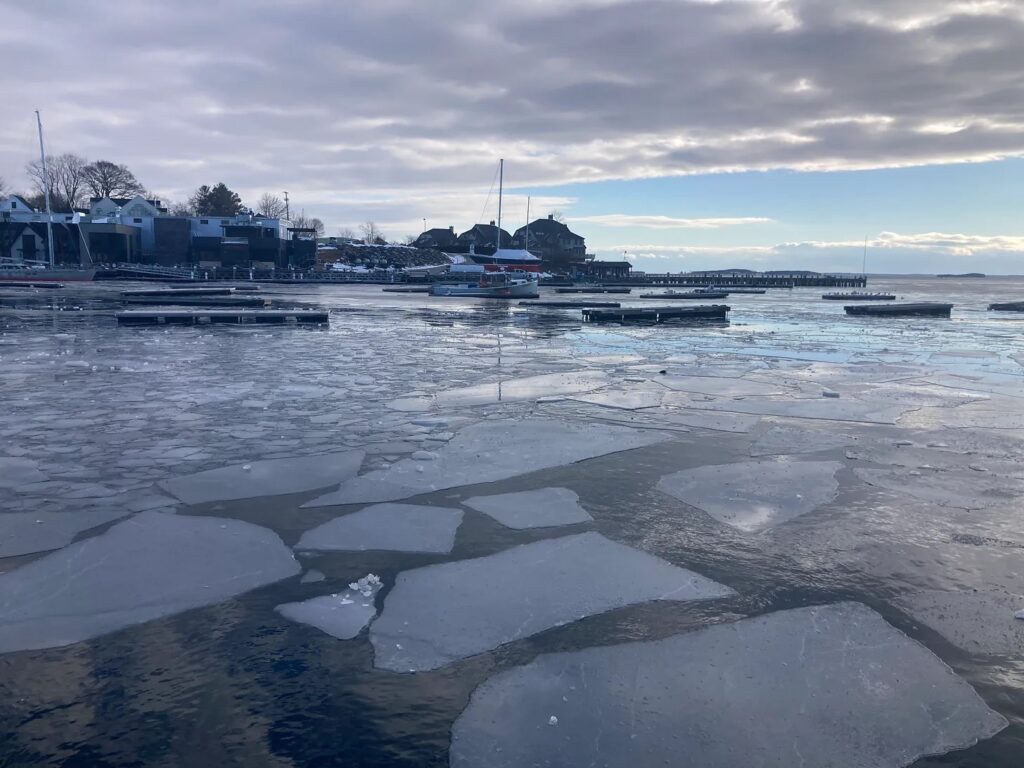
It’s not time to mince words. It’s not time to offer hope and platitudes.
It’s time to pay attention—careful attention—and act.
We respect anyone’s need to disengage. Yet for those of us able to fight for what we care for, the time is now.
There are five critical components of effective action: 1) paying attention; 2) analyzing and assessing; 3) caring about the outcome; 4) sensing/knowing the action to take; 5) having the courage to act.
Caring underlies it all. We won’t always know the specific action to take, but if we care, and pay attention to that caring, it will guide us to appropriate actions.
The purpose of this newsletter is to promote collective climate action. We see climate action as critical to the health of the planet. In this edition of the newsletter we’re suggesting actions that might seem beyond the scope of climate work, but they’re not. (We’ve separated topics so you can hone in the areas and actions that suit you best.)
What we do these next few days, weeks, and months protects and strengthens the systems we’ve created in the United States for a healthy planet.
This is a fight not just for our lives, but for all species and peoples living on Earth.
Along with the actions listed below, we hope you’ll show up for the Camden Harbor Resilience Planning event this Wednesday 2.5.25 at 4:30 pm at Camden Public Library (CPL). (See more below, or here.)
On 2.11.25 we’ll host the second of our In Transition gatherings (5 pm, CPL, see more below or here). This is also a great forum for meeting other like-minded citizens and mapping out actions for our future.
Calls to Action—Federal
Federal Monies and Climate. Now’s the time to ask our congressional delegates (Collins, King, Pingree, Golden) what’s happening to federal climate grants, especially the funds promised to improve resilience. Also ask about cuts to FEMA/federal help when climate disasters occur. Congress has the power to stop these cuts. Ask your Congressional rep to speak out on these issues.
Susan Collins is now head of the Senate Appropriations Committee—it’s time to ask her specific questions about the slashing of federal programs. Ask her who’s benefitting from the destruction of these programs. (There’s no healthy future in what is happening.) Reach her here. Collins needs to hear our voices, loudly and clearly, and answer our questions.
Supporting Federal Employees. If you enjoy the National Parks, clean air and water, scientific weather reporting, the safety of our roads and bridges—you have Federal and State workers to thank. Consider helping civil servants resist the offers to gut their jobs. We need them to stay at work, in order to slow the destruction of the functioning government. We, the taxpayers, have invested in this government—with our taxes—so it will serve our needs. (Remember “A government by the people, for the people”?) It’s our government. Reach out to any civil servants you know, find out how they’re doing. Share their stories—all citizens need to hear how these cuts are impacting every section of our society.
Energy Misinformation. The attempt to create an “energy emergency” and promote fossil fuel use is literally a smokescreen. Clean energy use is rising in the US—as it should be, logically, since it’s more cost effective over time, it works, and it provides ample energy. Subvert the promoted narrative—“we don’t have enough fossil fuel”—by increasing your demand for, and use of, clean energy.
If you can afford to do so, now’s the time to switch to a hybrid and/or EV. Now’s also the time to cut back on your demand for fossil fuels. Take fewer trips, consolidating them when you can. When we show we don’t want or need fossil fuels the whole ruse of the “energy emergency” crumbles. (It’s also a good time to switch to clean energy appliances.)
Calls to Action—Maine
Net Energy Billing. The energy environment in Maine has benefitted greatly from Net Energy Billing, which makes the economics of clean energy work for individuals, communities, and businesses. Now that is under attack, via LD 32: An Act to Repeal the Laws Regarding Net Energy Billing, and LD 257: An Act to Eliminate the Practice of Net Energy Billing. Your testimony against these two bills—before February 6—prevents the utility companies from their attempt to revoke these financial incentives. Visit https://www.mainelegislature.org/testimony/, then select “Public Hearing.” The Committee is Energy, Utilities, and Technology. The date is 2.6.25 at 1 pm, and you are testifying against the two bills listed above. Visit this page at A Climate to Thrive for more background information and step-by-step instructions.
Climate Action Plan/State Grants. Maine’s current budget shortfall is, among other things, a reality. Governor Mills hasn’t backed off from climate goals — yet. But we don’t yet know what federal monies will be withheld. For the time being, our recommendation is to stay abreast of what’s happening in the state by subscribing to Maine Monitor and/or Maine Morning Star. Also follow the work of The Maine Climate Council—the calendar for their meetings is here.
Organizations to Support include Maine Sierra Club (sign up for action alerts and newsletter), Maine Climate Action Now (sign up for newsletter), Maine’s People Alliance, A Climate to Thrive (sign up for newsletter).
Calls to Action—Camden and Rockport
Organizing Resistance and Connection. If you’re feeling helpless, watching safeguards crumble, you’re not the only one. We’ll keep holding events and striving to provide outlets for practical action and organizing to keep climate funding flowing.
Select Boards. Attend meetings, ask what town staff and representatives know about federal funding cuts and how they’re affecting your town. By asking and publicizing the implications we can keep everyone abreast of what we’re facing. We have to make sure everyone in our communities, no matter what their political persuasion, knows the impacts of actions being taken. There is a Camden select board meeting 2.4.25. The next Rockport select boardmeeting is 2.10.25.
Budget Committees. The next several years is likely to see a tightening of budgets, as we fix climate damage and respond to funding losses from the federal and state governments. We need folks committed to holding down non-critical spending so we can afford the actions needed to mitigate global warming and cover climate emergencies. (The warming of the atmosphere is costing us a lot: listen to Andrew Dressler here.) By volunteering for your town’s budget committee you ensure that your climate voice is heard. Camden residents apply here. (There don’t seem to be any openings on the Rockport budget committee at the moment.)
Calls to Action—Personal Connections
Stay Informed. Dahlia Lithwick (with Princeton professor Kim Lane Scheppele)/Amicus, “Trump’s American Takeover;” Heather Cox Richardson; Robert Hubbell; Paul Krugman; Timothy Snyder/Thinking About, “The Logic of Destruction;” Dave Rothkopf/Need to Know; and Bernie Sanders, are some of the thought leaders from this week we’d suggest. Let us know others you’d suggest.
Support/Solace. We’ve already begun to hear of layoffs and shutdowns trickling out from the concentric rings of federal spending cuts. As you hear of these changes to the lives of those around you, after offering them support, do your best to spread the word about what’s happening. We all need to know the depth of the lives affected. Support organizations keeping lawless sweeps and purges away. Peer-to-peer support and care for others strengthens our communities, building resilience. (Read Kathleen Sullivan’s essay, “The Cruelest Week.”)
If You Just Want to Focus on Climate. Visit the Yale Climate Connections Solutions Hub. There are many, many actions.
Upcoming Climate Events
2.5.25, Wednesday, 4:30-6 pm, Camden Public Library, Camden Harbor Resilience Visioning Session. Richardson Associates will share the outcomes of the survey and conversations to date and present preliminary high-level harbor visioning alternatives that provide resilience in different concept plans. They’ll seek community input on these alternatives to better understand the community’s preferences before shaping final recommendations. This interactive session will have each alternative printed in a large format so folks can comment and identify strengths and weaknesses, using stickers dots and post-it notes. They’ll break the project area into six different sections called “reaches.” Participants will be asked to comment and prioritize the resilience strategies they like best in each reach, rather than simply picking option A or option B. Refreshments and child care will be provided.
2.11.25, Tuesdays, Every Other Week until April, 5-5:45 pm, Camden Public Library, CamdenCAN Reading and Discussion Group, In Transition. Our bi-monthly reading group explores ideas from The Permaculture City by Toby Hemenway. (Via the Internet Archive you can read the book online here.) Together, we’ll tackle topics like creating home and community gardens, mastering water wisdom, finding energy solutions, fostering local livelihoods and wealth, embracing bioregionalism, and rethinking governance. Bring your curiosity, your ideas, and your passion for resilience—your voice will help secure our community’s future. Led by Joline Blais. Joline researches regenerative design, teaches permaculture, and advises the Terrell House Permaculture Center at UMaine. See also here.
2.19.25, Wednesday, 6-7:30 pm, Rockport Public Library, From Global to Local: Planning and Action for Climate Change. Are you wondering what is happening in Rockport to mitigate the effects of storms and climate-related damages? Or are you wondering what you can do to help? This talk will explore the multifaceted approach to addressing climate change, examining global, state, and local efforts to mitigate its impacts and adapt to its challenges. Speakers will share highlights from Maine’s climate action plan, Maine Won’t Wait, as well as planning in Rockport. Speakers: Molly Siegel, Maine Climate Council Coordinator, Governor’s Office of Policy Innovation and the Future; Jeff Runge, Rockport Conservation Committee; Jenny Carter, Sustainability Director, City of Rockland.
2.20.25, Thursday, 6:30 pm, Camden Public Library. Camden Talks Climate presents Saving Walden’s World, A Film About Local Resilience.Acclaimed filmmaker and Belfast resident Jim Merkel explores the urgent need for ecological balance through inspiring stories of resilience, sustainability, and hope in Slovenia, Cuba, and Kerala, India. This thought-provoking film—which we’ll watch a short bit of—challenges us to rethink our relationship with nature and empowers us to take meaningful action for a healthier, more harmonious world. Join us on Merkel’s journey to save not just his son Walden’s world, but our shared future.
3.6.25, Thursday, 6:30 pm, Camden Public Library. Camden Talks Climate “How to Instigate Action on Climate Change,” with Kerry Emanuel, MIT Professor Emeritus of Atmospheric Science at MIT. Despite solid economic and scientific evidence that we’re paying a large price for climate change, emissions of greenhouse gases continue to rise, and there has been relatively little adaptation to the changing climate. In this talk Emanuel argues that this inaction is a natural consequence of massive tax- and rate-payer subsidies for living and building in risky locations, causing a well-documented migration from less risky to more risky places. Professor Emanuel will present some ideas for reversing this migration and thereby precipitating sensible measures to deal with our changing climate.
Concluding Thoughts
These times are frightening and they’ll stay that way. Edicts from the executive branch designed to frighten us and create chaos around energy and other climate-related issues ensure that. The changing climate and deteriorating ecospere ensure that.
While our fear is imminently real, it’s not a reason to hold back.
Together we can acknowledge the fear, validate the challenges of acting through the chaos, and articulate a vision for resistance. It’s not clear at the moment what all the needed actions are, but we hope we’ve given you a place to start.
Join local climate events. You’ll find others ready and willing to act for our future.
Collective action is our super power.
